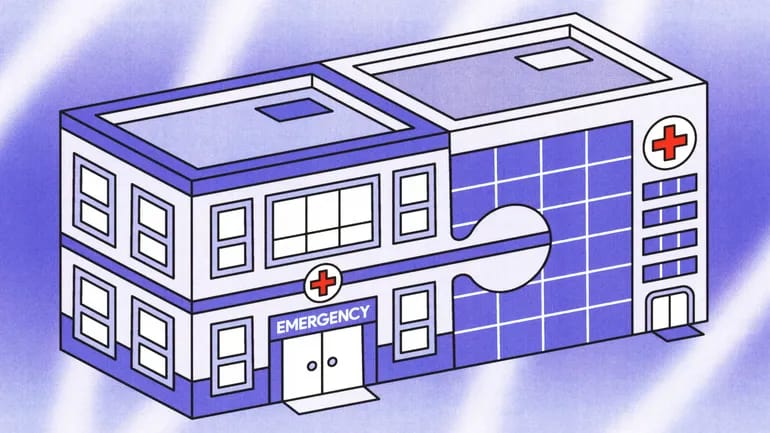This audio is auto-generated. Please let us know if you have feedback.
Dive Brief:
- New York and Connecticut have signed off on Nuvance Health’s plans to join Northwell Health, inching the health systems closer to a completed merger — provided they comply with certain closing conditions.
- Northwell and Nuvance agreed Friday to expand women’s health services over the next five years, unify the electronic health record within three years and negotiate reimbursement rates for New York and Connecticut facilities separately, among other terms.
- The deal still requires approval from the Connecticut Office of Health Strategy and the New York State Department of Health, according to a spokesperson from Northwell. However, it cleared federal review earlier this year.
Dive Insight:
Nuvance and Northwell first disclosed their intentions to merge in February. The tie-up, if finalized, will create a 28-hospital system in the northeast U.S. while offering Northwell, the largest health system in New York, access to the Connecticut market.
The systems billed the merger as symbiotic, saying it would accelerate innovation and help them attract and retain talent.
However, Nuvance’s declining financial position is the larger force behind the merger, concluded the New York and Connecticut attorneys general. The system — which has six hospital campuses to Northwell’s 21 — has struggled with lukewarm returns from its 2019 merger, financial challenges related to the COVID-19 pandemic and underutilization of medical services.
Most recently, Nuvance logged a $164 million operating loss in the fiscal year ended Sept. 30, 2023.
The health system’s financial challenges — as well as its limited geographic overlap with Northwell — gave the state attorneys general confidence to approve the deal. Without a merger Nuvance could be forced to shutter facilities, impacting patient care, according to their report.
“Nuvance is in a precarious financial situation. Closure or further reduction in care at Nuvance hospitals could substantially harm patient access to quality local healthcare in western Connecticut and the Hudson Valley of New York,” the attorneys general wrote.
Northwell is required to increase investments in labor and delivery services at Connecticut-based Sharon Hospital for five years and maintain service and staffing levels at New York-based Putnam Hospital for one year following the merger.
The assurance agreement brokered between the states and health systems is notable because it assigns an end date to Northwell’s obligations to invest in Nuvance’s facilities, according to David Schwartz, a former lead investigative attorney at the Federal Trade Commission and a partner in the antitrust and competition group at law firm Bryan Cave Leighton Paisner.
Expiration dates are not uncommon in healthcare M&A — for example, acquiring health systems often agree not to shutter facilities within a certain number of years. However, Schwartz said that many antitrust enforcers are generally uncomfortable with such arrangements as they only stave off anticompetitive effects for a short time.
The former FTC attorney speculated that the attorneys general might be hoping a new Connecticut law will “be sufficiently well-accepted to prevent any harmful anticompetitive effects” by the time the deal’s terms expire.
Passed in 2023, the law is designed to enhance access to affordable healthcare by limiting patient steering between insurers and providers and enhancing reporting requirements for providers post-merger.
How the law affects Northwell’s and Nuvance’s operations in New York if they merge is a “major outstanding question,” Schwartz said via email, “but presumably the parties were able to answer that question to the [Connecticut attorney general’s] satisfaction.”
The deal’s focus on expanding labor and delivery services amid a wave of recent closures of maternal health services also highlight how regulators can leverage their position in the approval process to ensure hospitals address critical access issues.
“Agreements like this demonstrate the continued political salience of these especially critical healthcare services,” Schwartz said. “And it serves as a lesson to other parties that enforcement concerns may be resolved by ensuring that certain high-priority areas are specifically addressed.”
Nuvance and Northwell still have some state regulatory hurdles ahead of them prior to closing the deal. However, the transaction cleared FTC review in July, according to a statement from Northwell.
At the top of the year, some healthcare experts believed that antitrust regulators would take a closer look at cross-market mergers — particularly after the FTC and the Department of Justice revised M&A guidelines in a way that would allow them stronger oversight.

